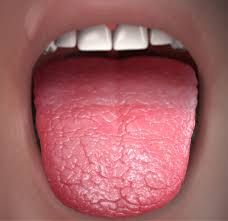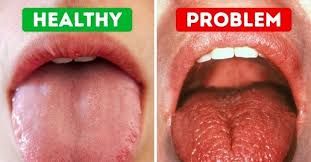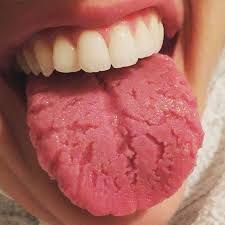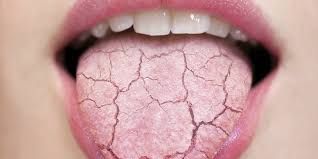Dehydration can have serious deleterious effects on your body, and among is its impact on the tongue. Either way dehydration usually arise from not drinking enough water or experience of severe dehydration due to a long period of a certain illness, the tongue can give out important hints regarding overall hydration levels. Ranging from dryness and discoloration up to a white coating of patches and malodorous bad breath. In simple terms, dehydration effects are easily observed on the tongue's reaction.
"It's a sign that your entire body requires more fluids. When you're not hydrating properly, your body starts to conserve the fluid it has. That's why one of the first signs of dehydration shows up in the mouth as decreased saliva production. This is why your tongue might feel dry and even swollen."Source
In this post, we’ll review thoroughly how dehydration affects the tongue appearance, the clue signs, and the way forward to solve the issues arising.
Effects of Dehydration on the Tongue
The tongue is very essential for clear speaking, tasting, and swallowing. It is likewise a reflection of the body’s overall quantification of hydration and status. Lack of enough water or losing more fluids than the one took into the body and by extension, the mouth, tongue can suffer a lot. Characteristics of a dehydrated body include the following noticeable changes;
1- Dry Tongue
Dry tongue is among the earliest and a very clear feature of a dehydrated body system. A body that is dehydrated, will produce less saliva, and eventually leads to dryness of the mouth and tongue tissues.
Saliva is generally known to keep the mouth wet, assist in digestion, and also exert cleansing protection of the teeth and gums from invading bacteria. Lack of adequate saliva in the mouth will cause the tongue to feel feel dry, rough, fissured will possible discomfort and burning sensation.
2- White Coating On The Tongue
White coating noticeable on the surface of the tongue can arise due to dehydration. This obvious coating is generally made up of dead accumulation of cells, bacteria, and food debris that buildup due to reduction in the production of saliva.
Lack of enough saliva to rinse away these particles, will provide fertile ground for building up on the tongue surface and eventually leading to a visible coating. Although white-coated tongue maybe a sign of other underlying health issues, but dehydration remains one of the most common causes of white coated tongues.
3- Tongue Swelling
Sometimes, dehydration can bring about swelling of the tongue. This can occur due to some of homeostatic reactions in which the body retains water in appropriate response to dehydration, and the tongue tissues, like other structures of the body, may become swollen.
However, due to big and enlarged tongue that sets in because of water loss, it can cause discomfort, including difficulty in speaking or even a change in taste sensation and perception.
4- Obvious Cracks And Fissures
"A dehydrated tongue may develop small cracks or fissures on its surface. These cracks can make the tongue feel rough or bumpy and may become painful if they deepen. A fissured tongue can also trap bacteria, leading to bad breath and an increased risk of infection."Source
5- Bad Breath
Dehydration can leads to bad breath (halitosis) over long periods because due to reduced saliva flow. Saliva plays a very big role in cleansing and flushing of the mouth by washing away food debris, material alba particles and bacteria.
However, chronic dehydration leads to less saliva to cleanse the mouth and as such create an atmosphere for bacteria to thrive, and eventually contributes to unpleasant breath and malodorous mouth.
That's all as regards the post on the impact of oral dehydration on the the tongue morphology.
Happy Blogging and Reading 💥💥💥💥
Video from medical centric YouTuber



